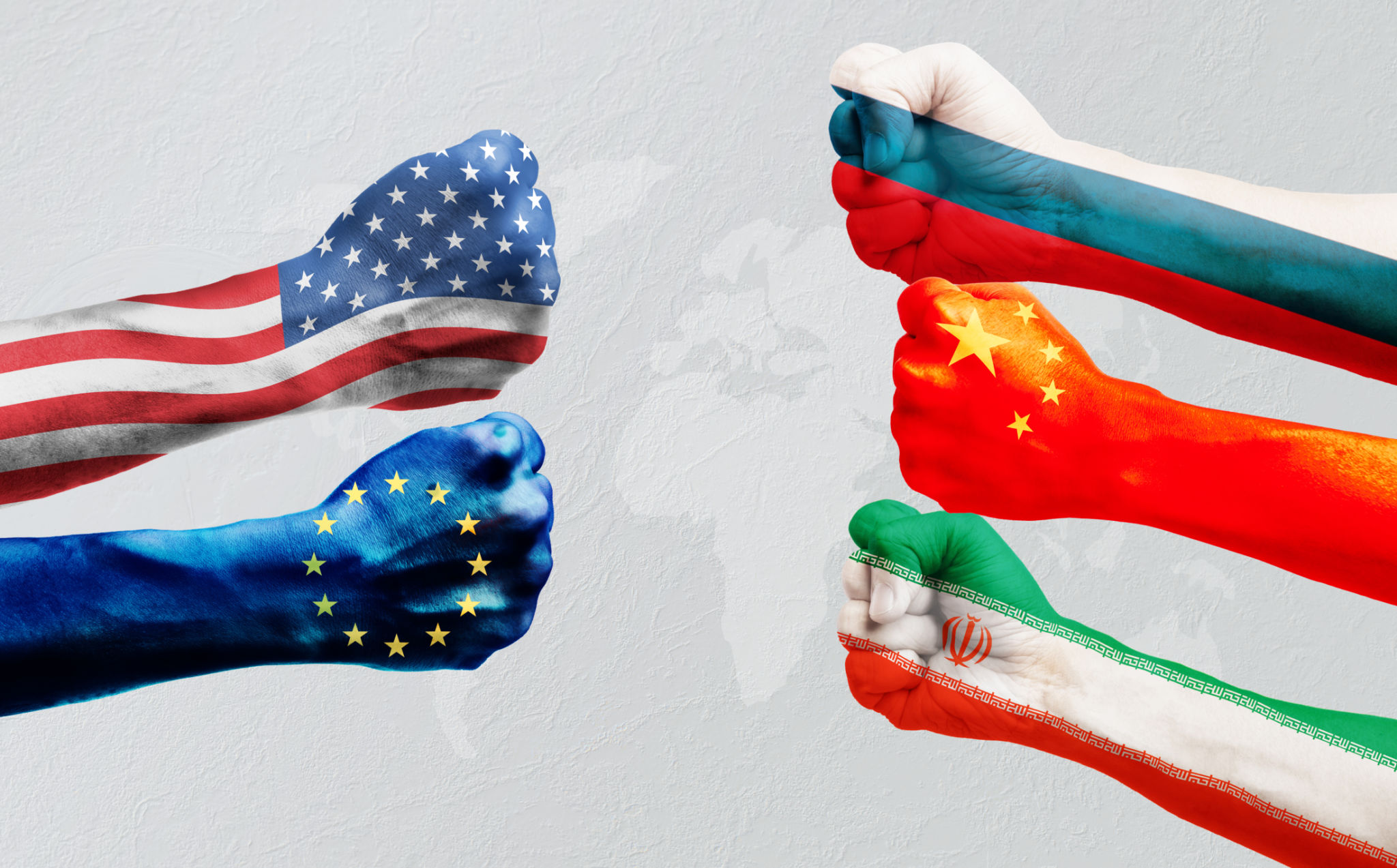Tariffs to BRICS Nations: Why Bullying 45% of the World Won’t Work
Tariffs to BRICS Nations: Why Bullying 45% of the World Won’t Work

Let’s be real: U.S. tariffs on BRICS nations aren’t what they seem, and the idea that America can dictate terms to nearly half the world’s population is delusional. As someone who loves my home city of Oakland, California, I know one thing—Oakland can’t bully the whole state of California, and neither can the U.S. bully BRICS nations.
Debt Dependency and Audacity
China holds over a trillion dollars in U.S. Treasury bonds, meaning the U.S. is heavily indebted to one of the very nations it’s trying to punish. That’s like borrowing money from someone and then trying to lecture them on how to manage their finances. Make it make sense!
And it’s not just China. The U.S. owes massive amounts of money to Japan, Saudi Arabia, and Europe. Yet, America has the audacity to lecture these nations on fiscal discipline while running up its own tab. It’s hypocrisy at its finest. As someone from Oakland, I’ve seen this kind of game up close: governments that can’t balance their own budgets but are quick to tell everyone else how to live. It’s wild.
Global Economics vs. Local Ignorance
Tariffs are a 20th-century solution to a 21st-century problem. The global economy doesn’t operate in silos anymore. Supply chains are interconnected, and when you disrupt them, everyone feels the pinch.
Meanwhile, BRICS nations like China are playing chess while America is stuck on checkers. China is out here building alliances in Africa, Asia, and Europe, expanding its influence while the U.S. fumbles with tariff tantrums. This kind of short-sightedness doesn’t just hurt China—it hurts America more. Trying to isolate yourself in a globalized world is like boxing with one hand tied behind your back—you’re setting yourself up for failure.
The Real Cost: Americans Pay Twice
Peep Game: tariffs don’t just hurt BRICS—they hurt Americans, too. Higher tariffs mean higher prices at the store, so consumers pay more. On top of that, the government collects the tariff revenue, so Americans are taxed twice—once as shoppers and again as taxpayers funding this nonsense.
But here’s where it gets even messier: many of these "Chinese goods" being taxed are actually produced by American companies that have operated in China for years. Take Nike, for example, which has relied on overseas production for decades to benefit from cheaper labor and fewer regulations. When tariffs hit, these companies face higher costs, which are passed on to American consumers.
And it’s not just Nike. Tech companies like Apple, which assembles most of its products in China, or Walmart, which imports a significant portion of its goods, are also affected. These tariffs don’t just penalize China—they penalize American businesses trying to stay competitive in a global economy.
The irony is that these companies moved operations overseas to cut costs, taking jobs away from American workers in the first place. Now, tariffs are taxing their production, forcing Americans to pay more for goods that used to be made at home. It’s a vicious cycle that highlights how disconnected these policies are from the realities of modern global economics.
This addition ties in the impact on American companies, provides real examples like Nike and Apple, and reinforces the broader critique of tariffs as a misguided strategy.

A Better Way Forward
If America wants to compete with BRICS, it needs to focus on fixing what’s broken at home. Invest in infrastructure. Fund education. Support innovation. Build an economy that’s strong because of what it produces, not because of who it penalizes.
But here’s the uncomfortable truth: American customers care about one thing—how cheap. For as long as I can remember, we’ve grown up watching pictures and videos of China’s harsh labor conditions. We’ve seen stories about 12-year-olds, elderly women, and workers toiling without livable wages or proper breaks. And yet, we continue to buy Jordans, luxury purses, and other high-end products made in those factories, never questioning who pays the real price for our bargains.
As George Carlin put it, “We don’t care about them, we just want our stuff.” We go on vacation with our stuff, only to buy more stuff—preferably at a cheaper price. America’s obsession with stockpiling goods and saving a buck has blinded us to the cost borne by the people making those products.
And here’s where it gets even more absurd: can you imagine someone owing you money, then turning around to threaten you with taxes and tell you what you better do? That’s exactly what America is doing to countries like China, which holds over a trillion dollars in U.S. debt. It’s like borrowing from a neighbor, then telling them how to mow their lawn.
Americans' appetite and thinking must change. We need to be less focused on luxury at any cost and shift toward prioritizing investment and savings. Universal healthcare and education would create a more educated and healthier country—one that makes better buying decisions. Instead of buying cars, houses, lashes, lip and butt injections, and teeth—often on credit—we need to prioritize financial responsibility. If Americans still feel they need these things, they should pay in cash, not saddle themselves with unnecessary debt.
The harsh reality is that most Americans are not retiring with enough money to take care of themselves. This shortfall places an immense burden on their families and the country as a whole.
If we truly want to build a stronger economy, we must shift the focus from exploiting cheap labor abroad to creating sustainable opportunities at home. That means addressing systemic issues—livable wages, fair working conditions, universal healthcare, and an economy built on equitable practices. Penalizing BRICS through tariffs won’t solve these problems, but investing in American workers and industries just might.

Debt hypocrisy is another critical issue.
The U.S. can’t preach about financial discipline while borrowing trillions from the very nations it’s trying to strong-arm. It’s time for real strategies, not political stunts. But strategies require leaders with real financial acumen and experience to guide this nation.
Here’s where key names like Dave Ramsey, John Hope Bryant, Ramit Sethi, and Suze Orman come into play. Each brings a unique skill set that could be transformative in a cabinet role. Here’s how they could contribute:
Recommended Cabinet Roles
Dave Ramsey – Secretary of Treasury

Known for his no-nonsense approach to budgeting and financial discipline, Ramsey could focus on eliminating wasteful spending and introducing practical, debt-reduction strategies at the national level.
John Hope Bryant – Secretary of Commerce

With his expertise in economic empowerment and creating opportunities in underserved communities, Bryant would drive initiatives to rebuild the middle class and promote small business growth, especially in economically disadvantaged areas.
Ramit Sethi – Director of the Office of Management and Budget (OMB)

Sethi’s innovative approach to personal finance and his emphasis on investing could help reshape how the government allocates resources, focusing on long-term returns rather than short-term fixes.
Suze Orman – Chair of the Federal Reserve or Secretary of Labor

Orman’s deep understanding of consumer behavior and financial markets makes her an excellent candidate to lead the Federal Reserve. Alternatively, as Secretary of Labor, she could champion policies that increase wages and retirement security for workers.
A Cabinet with Real Power
These leaders are not just advisors; they’re problem solvers who understand money, economics, and how financial policies impact everyday Americans. Bringing their expertise into key cabinet positions could steer the U.S. away from the dangerous cycle of debt and into a future of sustainable economic growth. It’s time for leaders with real-world experience to have real power.
.
Conclusion: Stop the Games
As Richard Wolff might say, America’s contradictions are its greatest weakness. America is outta pocket, and needs to stop playing games, Yadadamean (Oakland Slang). Governments fumble their own budgets but want to dictate terms to the rest of the world.
You can’t bully nearly half the global population without repercussions. It’s time to focus on rebuilding at home, strengthening the economy with integrity, and engaging with the world through partnership—not outdated power plays. The clock’s ticking, and the world is watching. You feel me?